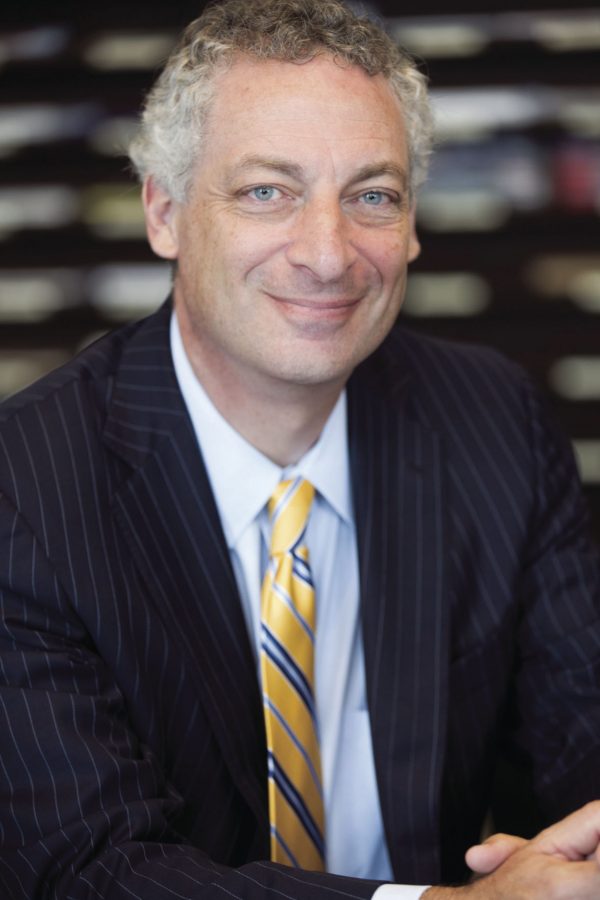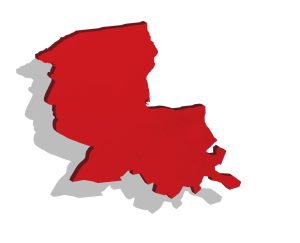Forman aims to inspire academic creativity as new provost
September 14, 2016
As the Class of 2020 settled in for their first weekend at Tulane, the administrative board welcomed a new member as well, senior vice president of Academic Affairs and provost, Robin Forman.
Forman has an extensive history in academia, beginning with his bachelor’s and master’s degrees in mathematics from University of Pennsylvania and his doctorate in mathematics from Harvard University. After finishing his schooling, Forman researched theoretical mathematics and taught at various universities.
After teaching as professor at Rice University for 19 years, Forman moved up into the administrative sector by becoming dean of undergraduates. In 2010, Forman left Rice and joined Emory University as the dean of Emory College of Arts and Sciences and Asa Griggs Candler professor of mathematics.
“…While there are significant differences between the institutions, and I have much to learn about Tulane, I do start with some insight into, and great appreciation for, the remarkable breadth of the work being carried out by our faculty and students,” Forman said.
Outside of academia, Forman has played chess for many years and is a former stand-up comedian. Forman still remains interested in these activities, but he says his passion has remained with education.
“Great universities are intellectually and culturally chaotic places,” Forman said. “There are ideas and activities and opportunities emerging from all directions. I love working in that environment. It is energizing and exhilarating.”
As provost, Foman will work with President Michael Fitts and the other directors and deans to prioritize and support the academic programs at Tulane University. After the former provost resigned in June, President Fitts started the search to fill the role.
“Specifically we sought someone with the ability to recruit top faculty, promote leading research and innovative curricula for our students and build scholarly and pedagogical bridges between different schools and disciplines within – and outside of – the university,” Fitts said.
Forman says his goals are to improve Tulane’s academic culture by starting with its leaders, the faculty.
“My priorities are to enhance the reach and impact of the research and creative work of the faculty, and to make sure that Tulane offers an educational experience that is second to none,” Forman said.
At Emory, however, Forman received criticism after cutting several programs and 22 non-tenured faculty members following the school’s loss of $8.5 million in 2011. This criticism continued when he built up the Institute for Quantitative Theory and Methods the same year.
In response to the claims of cost-cutting, Forman emphasized that the moves were part of efforts to reallocate expenses for Emory’s benefit.
“It’s not about cutting costs at all,” Forman said in a 2012 interview with The Emory Wheel. “It’s not about reducing expenses. Every dollar we free up from this reorganization will be reinvested in the academic mission.”
With a history of cost cutting policies, Forman said Tulane needs to work more effectively at maintaining its intellectual experience.
“Tulane has created many powerful programs and research collaborations that span these traditional scholarly divides, but we need to find more and more effective, ways to build and support these important intellectual communities,” Forman said.
Much thought and deliberation was taken into account when choosing who would fit his role. Forman was found by a search committee co-chaired by Dr. M.A. “Tonette” Krousel-Woods, senior associate dean for Faculty Affairs in the School of Medicine and Dr. Steven M. Sheffrin, professor of economics and the director of the Murphy Institute.
“I think there’s a lot of decisions that will have to be made in the next several years,” Sheffrin said. “And I think he is someone who seems very straight-forward, very engaged and I think he is willing to put in the hard work and provide the leadership I think we need.”
While his job may have only just started, Forman is looking forward to immersing himself in the community here at Tulane.
“It has long been clear to me, through my meetings with dozens of Tulane alumni over many years, that Tulane is a very special institution, New Orleans is a very special city and that it would be great fun, and tremendously rewarding, to someday be a member of this remarkable community,” Forman said.










Leave a Comment